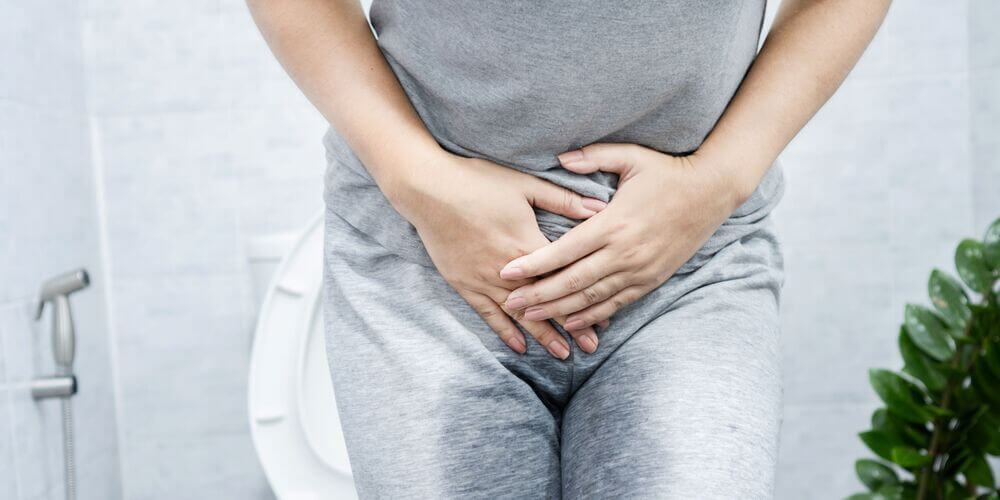Exploring the Connection Between Urinary Incontinence and Breathing
Have you ever experienced those moments of involuntary leakage that made you question your body's control? Learn how you can conquer Urinary Incontinence by breathing the right way
Have you ever experienced those moments of involuntary leakage that made you question your body's control?
Know that you’re not alone.
Urinary Incontinence, a condition that affects 25 million Americans, can be both physically and emotionally challenging.
When you hear the word incontinence, the first thing that comes into your mind might be the physical hardships associated with the condition. But, here, the emotional challenges are worse than the physical elements.
Urinary Incontinence is defined as the inability to control the flow of urine from the bladder. This condition is more than dealing with involuntary bladder leakage. It involves several emotional responses too.
The gravity of this condition ranges from the leakage resulting from coughing or sneezing to the urgent need to urinate when the toilet facilities are inaccessible.
Why Does Urinary Incontinence Occur?
There are mainly two types of Urinary Incontinence:
Stress Incontinence
This is the most prevalent form of incontinence, particularly among younger women. It arises when there is pressure or stress exerted on the bladder. Weak pelvic floor muscles can increase the burden on the bladder and urethra, causing them to work harder.
In the case of stress incontinence, common actions involving the pelvic floor muscles, like coughing, sneezing, or laughing, can lead to urine leakage. This damage/weakness of pelvic floor muscles is caused by various factors, including:
- Childbirth-related damage
- Increased abdominal pressure due to pregnancy or obesity
- Damage to the bladder or adjacent regions due to surgical procedures (hysterectomy, prostate gland removal, etc.)
- Neurological conditions such as Parkinson's disease or multiple sclerosis
- Connective-tissue disorders
- Certain medications
Urge Incontinence
Urine leakage associated with urge incontinence (also known as overactive bladder) typically happens following a strong, sudden urge to urinate, often before reaching a restroom.
Some women experiencing urge incontinence may manage to reach the restroom in time but feel the urge to pass urine more than 8 times a day. However, they may not urinate much once they reach the restroom. This condition is more commonly observed in older women.
This frequent urge to pass urine can be caused when your detrusor muscles, located in the bladder walls, contract too often, making an urge to go to the toilet. The exact reason for this frequent contraction of detrusor muscles is unknown, but the possible reasons include:
- Excessive alcohol/caffeine consumption
- Not consuming enough fluids
- Constipation
- Urinary tract infections or bladder tumors
- Neurological conditions
- Certain medications
Are Stress and Incontinence Connected?
As you may already be aware, incontinence is a highly prevalent issue. It is estimated that more than 60% of adult U.S. women are affected by urinary incontinence.
However, despite its common occurrence, the feelings of embarrassment associated with incontinence persist. The mere thought of an unexpected leak can induce significant stress and anxiety.
The connection between stress and incontinence is a two-way street. Did you ever find yourself saying, "I'm so scared that I might wet myself?" Surprisingly, there is actual scientific reasoning behind this expression.
When you’re experiencing stress or anxiety, your body activates its “fight-or-flight” response. The surge of adrenaline released during such moments is believed to trigger the need to urinate.
Hence, there is undoubtedly a correlation between your emotional state and its potential impact on your bladder. Moreover, anxiety and stress can also cause more frequent urination.
Can Urinary Incontinence Be Reversed?
The answer is yes. Simple lifestyle changes, such as management of fluid intake, smoking cessation, weight control, reducing caffeine, removal of bladder irritants from your diet, and managing constipation, can ease discomfort or cure urinary incontinence for most people.
Are you wondering what your breath can do in easing that 'gotta-go' feeling often associated with urinary incontinence?
Your breath is an amazing tool for gaining control over urinary incontinence. Many of us are unaware of the way we breathe and how it impacts our bladder health.
Research has shown that diaphragmatic breathing has a positive role in the treatment of urinary incontinence. Learning to breathe diaphragmatically helps your pelvic floor muscles receive the much-needed support.
What does diaphragmatic breathing look like? Place your hands on your lower belly and take a deep breath. If you feel an expansion in your belly (and also your sides, lower back, and yes, your pelvic floor), that means the muscular dome of your diaphragm, which rests under your lungs, is lowering and flattening as you breathe in, putting pressure on your lower torso to expand in all directions. If a generous movement is not happening there, you would benefit from diaphragm-strengthening exercises.
Utilizing the maximum potential of your diaphragm strengthens and stabilizes the pelvic floor muscles, providing a foundation for improved bladder control.
As mentioned earlier, there is a strong link between stress and urinary incontinence. When you’re under stress, you often resort to rapid, shallow, high-chest breathing.
However, following Optimal Breathing Techniques activates your body’s parasympathetic nervous system and regulates physiological functions such as heart rate, breathing rate, and urination.
Diaphragmatic breathing not only reduces urinary urges but also helps alleviate various stress-related symptoms and promotes a general sense of calm and well-being.
Breathe right and your bladder will thank you.
Read More
Incontinence May Not Be About Aging




